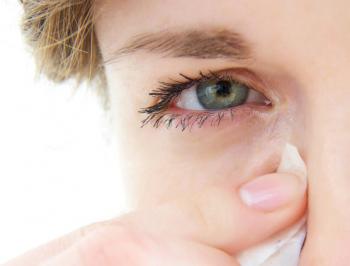Some people have dry eyes, which means their eyes don’t produce enough tears. On the other hand, some people have watery eyes, i.e. their eyes produce more tears than are required. Excessive moisture in the eye can hamper vision and cause discomfort, which is why this condition should not be taken lightly. If you find yourself tearing up even if you aren’t in an emotionally overwhelming situation, it may be due to an underlying medical reason. Yes, there are certain conditions which can cause watery eyes, and this makes it even more important that you know how to treat them.
Some of the most common causes of watery eyes are:
- You may find this ironic but if you have dry-eye syndrome, you may have watery eyes. This is because when your eyes dry out, it leads to irritation, which in turns prompts overproduction of tears. Therefore, any factor which can cause you to get dry eyes can lead to watery eyes, so you have to be careful about this. You should watch out for symptoms such as itchiness in the eyes, burning sensations, and blurred vision. If you experience any of these symptoms in addition to watery eyes, you probably have dry-eye syndrome.
- If you are allergic to any substance, it may cause your eyes to redden and also lead to irritation and discomfort. Generally, people who are allergic to pollen might experience watery eyes when they are near grass or trees. Moreover, mold and dust & dirt indoors can also lead to watery eyes. Keeping your home clean is one way you can reduce the risk of watery eyes, especially if you are allergic to dust or other contaminants, such as pet dander. Some people may suffer from watery eyes as a result of being exposed to cigarette smoke or perfumes.
- As mentioned above, certain medical conditions can cause watery eyes. This is particularly true for infections. If you have an eye infection, your eye will produce more tears to get rid of the infection, which will cause your eyes to water. A common example of this is conjunctivitis, otherwise known as pink eye. Any contaminant which can cause infection of the eyes can lead to watery eyes. This is also true for people who wear contact lenses, as they are at an increased risk of pink eye.
- Last, but not the least, if any irritant enters your eye, it will produce more tears to remove it. This can be anything, ranging from certain chemicals to dust or even bright lights. Moreover, if you sit in front of a screen for too long, your eyes might get irritated and become watery.
So, now that you know the symptoms and causes associated with watery eyes, you can take certain measures to prevent the condition. The best option is to see a doctor if your eyes get watery and you are unable to identify the cause, so that the problem can be nipped in the bud.




